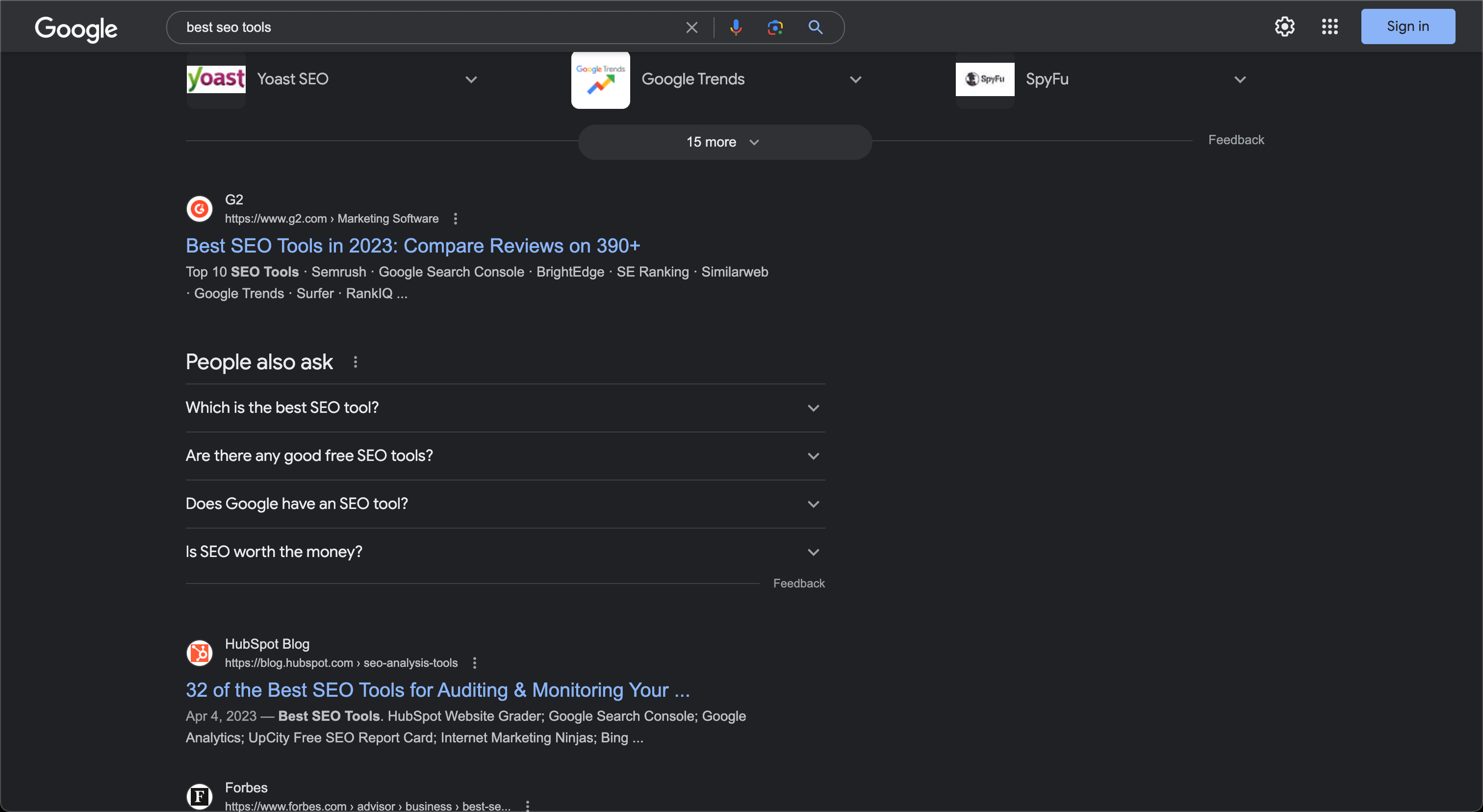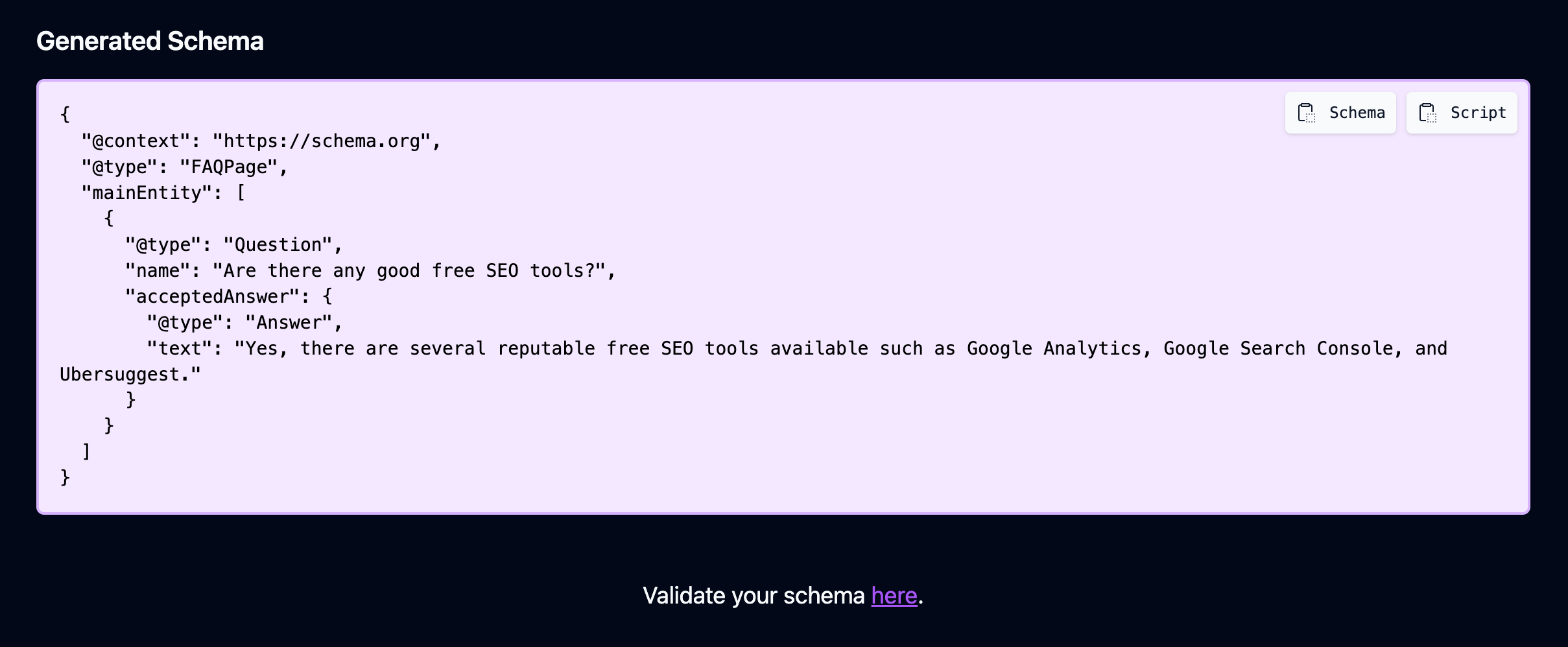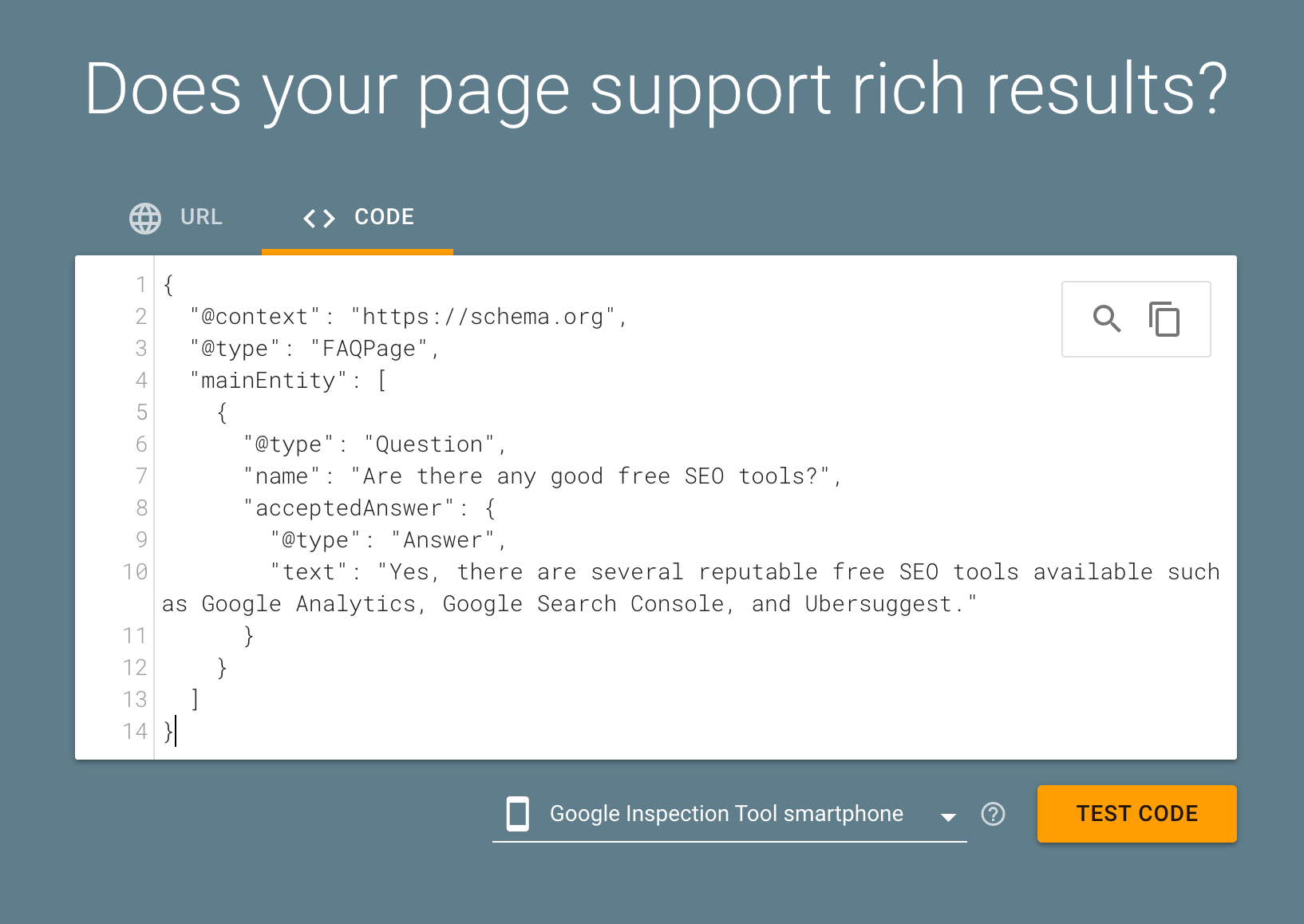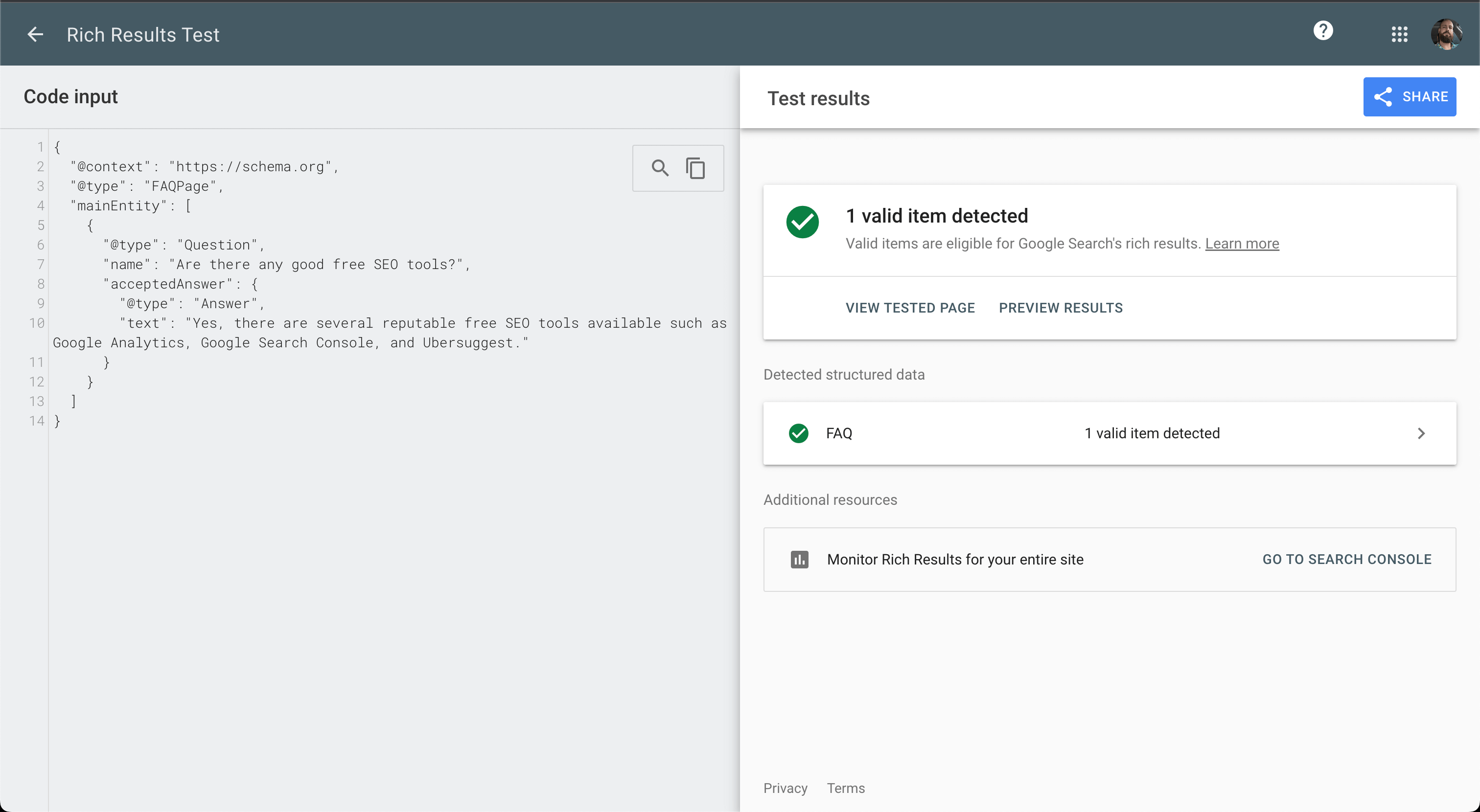Creating a FAQ schema for your website offers potential visitors a quick overview of commonly asked questions right within the search results. It's a potent tool that can not only elevate user experience but also enhance your search engine visibility. Fortunately, with tools like Scale Sleek's Free Schema Generator, you can seamlessly integrate FAQ schemas without a hassle. In this enhanced guide, let's delve deeper into each step of the process.
Begin by visiting the Scale Sleek website or its dedicated platform. This tool is intuitive and user-friendly, offering a range of functionalities tailored to SEO and website enhancement.

Upon landing on Scale Sleek's main page, direct your attention to a distinct section or tab titled "Free Tools". This section houses a collection of valuable tools that can greatly assist in improving your site's optimization.

Within the vast array of free tools available, make your selection of the "Schema Generator". This specific tool is designed to aid users in creating structured data effortlessly.
Now, you'll be greeted with an assortment of schema types, each catering to different needs. It's essential to pick the right schema to suit the purpose you have in mind.

From the diverse list of schema types presented, zero in on and select the "FAQ schema generator". This option is tailored specifically for generating schemas that showcase frequently asked questions.
Initiate an Incognito Window on your browser. This function ensures that your searches remain neutral, and devoid of personalized recommendations, leading to a more objective set of search results.

Before proceeding, you might want to ascertain which keywords are driving maximum traffic to your site. If you're not armed with this knowledge, execute an audit on Scale Sleek. It offers detailed insight, revealing the performance metrics of various keywords.
Armed with your top-performing keywords, input them into the search bar of a popular search engine (like Google) within the Incognito Window. This search will reveal how your keywords fare in a neutral environment.
Major search engines, especially Google, feature a "People Also Ask" section. This section reveals questions that users frequently associate with your keyword. Extract and copy these questions for further use.
Transition to ChatGPT and paste the earlier copied questions. Instruct ChatGPT to generate a "Brief FAQ" rooted in these questions. Relying on AI intelligence, ChatGPT will meticulously refine and churn out succinct yet informative answers.
Here's an example prompt you can use to engage with ChatGPT to print out the answers to the questions you've collected:

Revisit Scale Sleek's FAQ Schema Generator. Carefully input the list of questions and their corresponding answers that ChatGPT has masterfully crafted for you.

After you’ve generated the code (which happens automatically as you type!), it’s good to validate the schema. Google has a tool that you can access to validate it.

Copy with the “Schema” button and plug it into the Code text box there and run Test Code.

Our generator will always produce valid code, but it’s sometimes reassuring to test it here.

Once you’ve validated the code, it’s time to…
After the schema generator processes and delivers the structured FAQ schema code, it's time to integrate it into your site. Use the "Script" button to copy the code and embed it in the designated section of your website, preferably within the
tags of the relevant page.<head>

By adhering to this comprehensive guide, you're not only enriching your website with valuable structured data but also amplifying its search visibility. Ensure to periodically revisit and refresh your FAQ schema to stay attuned to the evolving nature of user queries and the digital realm.
Before advancing, ensure:
Upon completion, you're primed for the subsequent module!